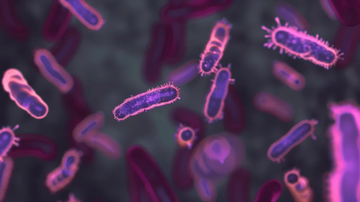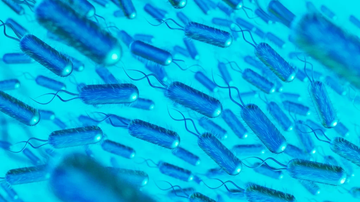The Bacillus genus, particularly Bacillus coagulans and Bacillus subtilis, is widely studied as a probiotic due to its ability to form spores that survive harsh conditions in the gastrointestinal tract. Unlike many other probiotics that are sensitive to temperature, pH, and digestive enzymes, Bacillus species can survive the acidic environment of the stomach, making them an attractive candidate for promoting gut health and immune function. Research from institutions such as the University of California and NIH has highlighted the benefits of Bacillus in digestive health, immune support, and even in treating irritable bowel syndrome (IBS) and infections.
One of the primary advantages of Bacillus species is their spore-forming ability, which enhances their survival through the digestive tract. This resilience allows Bacillus probiotics to reach the intestines alive, where they can exert beneficial effects. Bacillus coagulans, for instance, has been shown to reduce symptoms of IBS by regulating bowel movements and reducing bloating and discomfort. It is also effective in modulating the gut microbiota, promoting the growth of beneficial bacteria, and suppressing pathogens.
Bacillus subtilis, another important member of this genus, has been explored for its immune-boosting properties. Studies indicate that it can stimulate the production of antibodies and enhance the immune system’s response to infections. Additionally, its production of enzymes like amylase and protease aids in breaking down complex carbohydrates and proteins, improving digestion and nutrient absorption.
Beyond digestive health, Bacillus species have shown promise in promoting overall immune function. By supporting the balance of the gut microbiota and enhancing mucosal immunity, Bacillus probiotics may reduce the incidence of infections and inflammation. Research is ongoing to explore their potential in treating more severe conditions such as inflammatory bowel disease (IBD).
In conclusion, Bacillus species stand out as robust probiotics with a wide range of applications, from digestive health and IBS relief to immune support. Their ability to form resilient spores makes them uniquely suited for probiotic supplements, ensuring that they survive the journey through the digestive system to reach the gut. As research continues, the therapeutic potential of Bacillus probiotics is likely to expand, making them a critical component of future probiotic therapies.
References
Lee, N.K., Kim, W.S. (2020). Probiotic potential of Bacillus species isolated from fermented food. Food Science and Biotechnology, 29(1), 35-44. https://doi.org/10.1007/s10068-020-00672-2.
Sanders, M.E., et al. (2019). Survival and impact of Bacillus coagulans in the gut microbiome. Journal of Functional Foods, 61, 103501. https://doi.org/10.1016/j.jff.2019.103501.
NIH. (n.d.). Bacillus and its role in gut health. National Institutes of Health. https://nih.gov.






